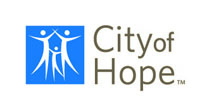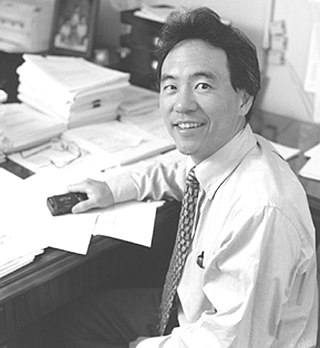
Baylor College of Medicine (BCM) is a medical school and research center in Houston, Texas, within the Texas Medical Center, the world's largest medical center. BCM is composed of four academic components: the School of Medicine, the Graduate School of Biomedical Sciences; the School of Health Professions, and the National School of Tropical Medicine.
The University of Texas Southwestern Medical Center is a public academic health science center in Dallas, Texas. With approximately 23,000 employees, more than 3,000 full-time faculty, and nearly 4 million outpatient visits per year, UT Southwestern is the largest medical school in the University of Texas System and the State of Texas.

The University of Texas MD Anderson Cancer Center is a comprehensive cancer center in Houston, Texas. It is the largest cancer center in the world and one of the original three NCI-designated comprehensive cancer centers in the country. It is both a degree-granting academic institution and a cancer treatment and research center located within Texas Medical Center (TMC), Houston, the largest medical center and life sciences destination in the world. MD Anderson Cancer Center has consistently ranked #1 among the best hospitals for cancer care and research in the U.S. and worldwide, and it has held the #1 position 20 times in the last 23 years in U.S. News & World Report's Best Hospitals rankings for cancer care. As of 2023, MD Anderson Cancer Center is home to the highest number of cancer clinical trials in the world and has received more NCI-funded projects than any other U.S. institute. In 2024, Newsweek placed MD Anderson at #1 in their annual list of the World's Best Specialized Hospitals in oncology.
Virotherapy is a treatment using biotechnology to convert viruses into therapeutic agents by reprogramming viruses to treat diseases. There are three main branches of virotherapy: anti-cancer oncolytic viruses, viral vectors for gene therapy and viral immunotherapy. These branches use three different types of treatment methods: gene overexpression, gene knockout, and suicide gene delivery. Gene overexpression adds genetic sequences that compensate for low to zero levels of needed gene expression. Gene knockout uses RNA methods to silence or reduce expression of disease-causing genes. Suicide gene delivery introduces genetic sequences that induce an apoptotic response in cells, usually to kill cancerous growths. In a slightly different context, virotherapy can also refer more broadly to the use of viruses to treat certain medical conditions by killing pathogens.

Ludwig Cancer Research is an international community of scientists focused on cancer research, with the goal of preventing and controlling cancer. It encompasses the Ludwig Institute for Cancer Research, an international non-profit organization founded in 1971 by philanthropist Daniel K. Ludwig. The Institute is headquartered in New York City, with a European office located in Zürich. There are currently three Ludwig Branches: Ludwig Lausanne, Ludwig Oxford and Ludwig Princeton. In addition, there are six Ludwig Centers at leading institutions across the United States of America. Together, the Institute, Branches and Centers are known as Ludwig Cancer Research.
Malcolm K. Brenner is a British clinical scientist working mostly in the field of gene therapy and immunotherapy applied to malignancy. In 2016, Dr. Brenner was elected to the National Academy of Medicine, part of the National Academies of Sciences, Engineering, and Medicine.

Moffitt Cancer Center & Research Institute is a nonprofit cancer treatment and research center located in Tampa, Florida. Established in 1981 by the Florida Legislature, the hospital opened in October 1986 on the University of South Florida's campus. Moffitt is one of two National Cancer Institute-designated Comprehensive Cancer Centers based in Florida. In 2021, U.S. News & World Report ranked Moffitt Cancer Center as a top 30 cancer hospital in the United States.
North Carolina State University College of Veterinary Medicine is an American educational institution located in Raleigh, North Carolina that offers master's and doctorate-level degree programs; interdisciplinary research in a range of veterinary and comparative medicine topics through centers, institutes, programs and laboratories; and external engagement through public service programs and activities.

City of Hope is a private, non-profit clinical research center, hospital and graduate school located in Duarte, California, United States. The center's main campus resides on 110 acres (45 ha) of land adjacent to the boundaries of Duarte and Irwindale, with a network of clinical practice locations throughout Southern California, satellite offices in Monrovia and Irwindale, and regional fundraising offices throughout the United States.
The University of Maryland Marlene and Stewart Greenebaum Comprehensive Cancer Center (UMGCCC) is a National Cancer Institute (NCI)-designated comprehensive cancer center located in Baltimore, Maryland.

Huda Yahya Zoghbi, born Huda El-Hibri, is a Lebanese-born American geneticist, and a professor at the Departments of Molecular and Human Genetics, Neuroscience and Neurology at the Baylor College of Medicine. She is the director of the Jan and Dan Duncan Neurological Research Institute. She was the editor of the Annual Review of Neuroscience from 2018-2024.

Larry Kwak is an American cancer researcher who works at City of Hope in Duarte, California and is the Director of the Toni Stephenson Lymphoma Center at City of Hope. Dr. Kwak formerly worked at the University of Texas MD Anderson Cancer Center. He was included on Time's list of 2010's most influential people.
Gustav Gaudernack is a scientist working in the development of cancer vaccines and cancer immunotherapy. He has developed various strategies in immunological treatment of cancer. He is involved in several ongoing cellular and immuno-gene therapeutic clinical trials and his research group has put major efforts into the development of various T cell-based immunotherapeutic strategies.

James Patrick Allison is an American immunologist and Nobel laureate who holds the position of professor and chair of immunology and executive director of immunotherapy platform at the MD Anderson Cancer Center in Houston, Texas. Allison is Regental Professor and Founding-Director of James P. Allison Institute at the MD Anderson Cancer Center.
David S. Baskin is a neurosurgeon who currently works at Houston Methodist Hospital as the Vice Chairman of the Department of Neurosurgery, the Director of the Residency Training program, and the Director of the Kenneth R. Peak Brain & Pituitary Tumor Center, and is also a professor of neurosurgery at Weill Cornell Medical College.
Helen Elisabeth Heslop is a physician-scientist from New Zealand whose clinical interests are in hematopoietic stem cell transplants. Heslop’s research focuses on immunotherapy to treat viral infections, post transplant and hematologic malignancies. She is a professor in the Department of Medicine and Pediatrics at Baylor College of Medicine and the director of the Center for Cell and Gene Therapy at Baylor College of Medicine, Texas Children’s Hospital and Houston Methodist Hospital. She is also the Dan L. Duncan Chair and the associate director of clinical research at the Dan L. Duncan Cancer Center.

J. William Harbour is an American ophthalmologist, ocular oncologist and cancer researcher. He is Chair of the Department of Ophthalmology at the University of Texas Southwestern Medical Center in Dallas. He previously served as the vice chair and director of ocular oncology at the Bascom Palmer Eye Institute and associate director for basic science at the Sylvester Comprehensive Cancer Center of the University of Miami's Miller School of Medicine.

Carl H. June is an American immunologist and oncologist. He is currently the Richard W. Vague Professor in Immunotherapy in the Department of Pathology and Laboratory Medicine at the Perelman School of Medicine of the University of Pennsylvania. He is most well known for his research on T cell therapies for the treatment of several forms of cancers. In 2020 he was elected to the American Philosophical Society.

Cynthia Dunbar is an American scientist and hematologist at the National Heart Lung and Blood Institute (NHLBI), which is part of the National Institutes of Health (NIH). She is the Branch Chief of the Translational Stem Cell Biology Branch.










